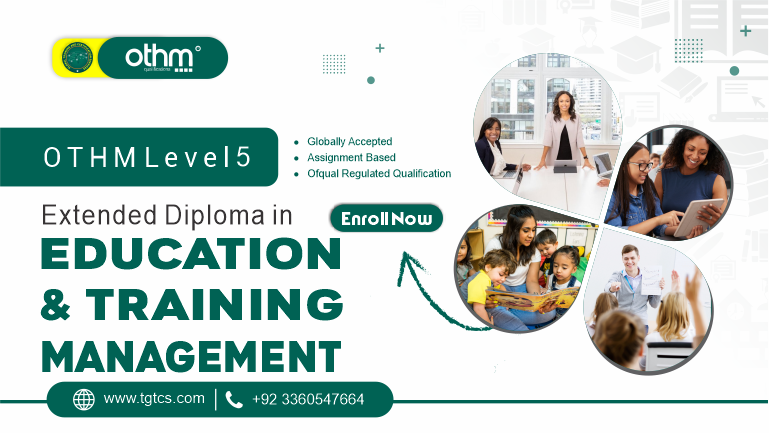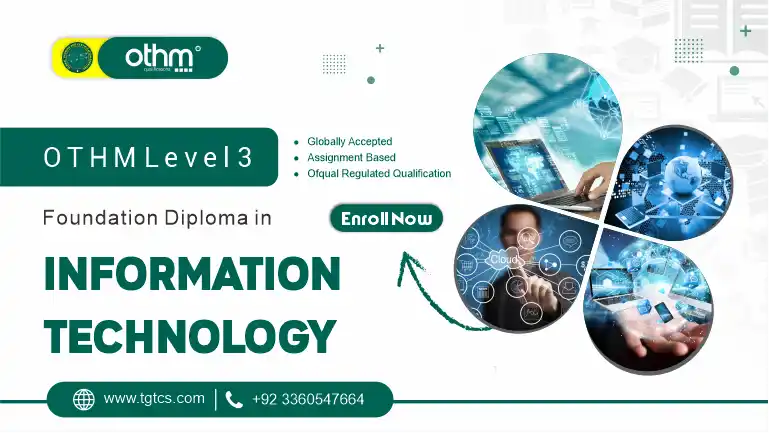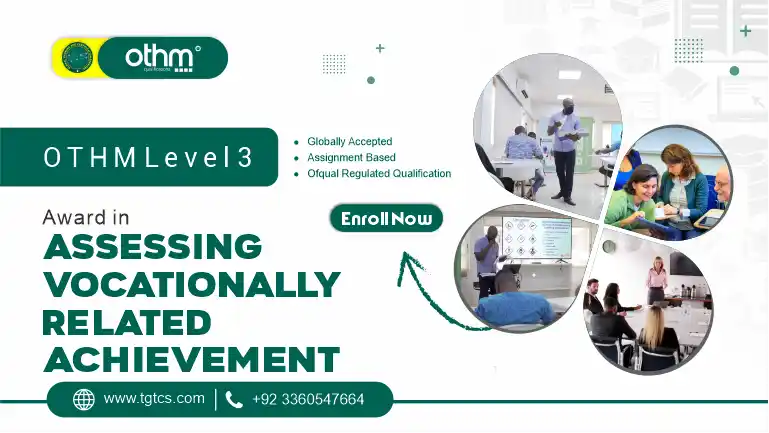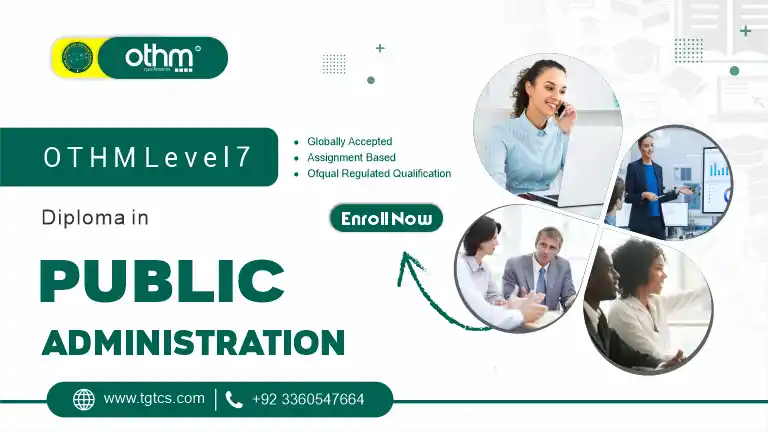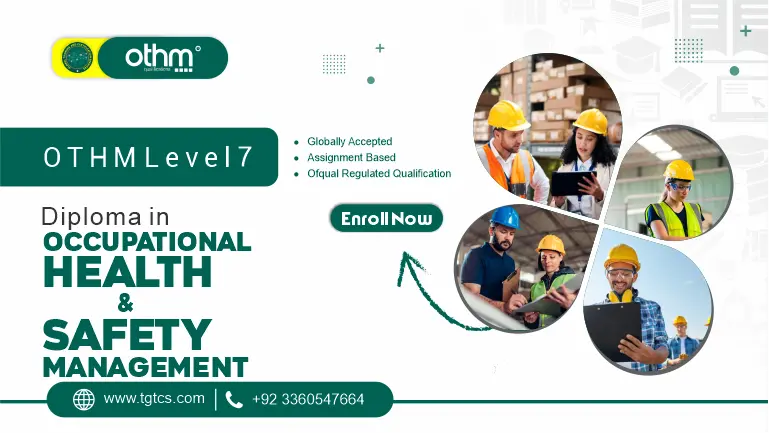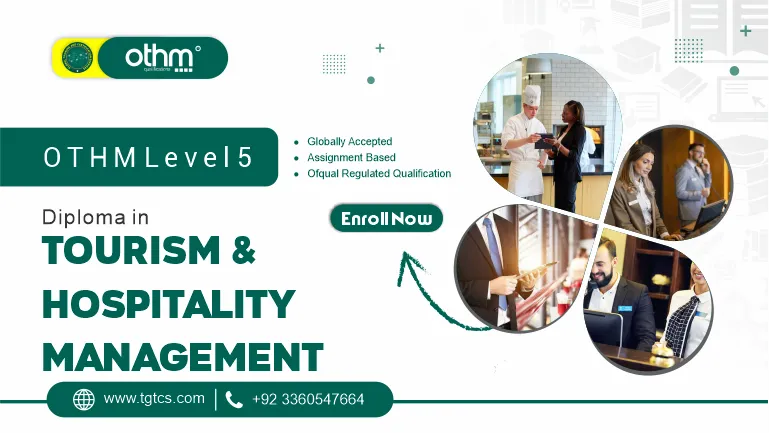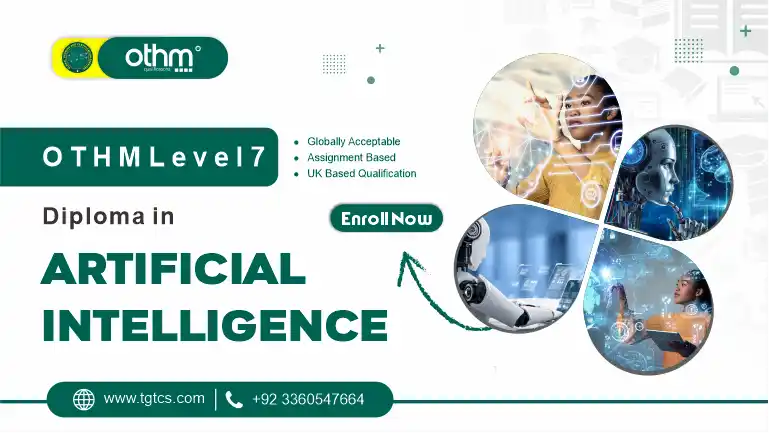OTHM Level 5 Diploma in Education and Training
Are you passionate about shaping young minds and making a real difference in the world of education? Do you aspire to become a highly skilled educator equipped with the latest teaching methodologies and strategies? If so, then the OTHM Level 5 Diploma in Education and Training is your gateway to success!
The OTHM Level 5 Diploma in Education and Training is a qualification designed for individuals looking to pursue a career in teaching and training. This diploma is recognized internationally and provides learners with the necessary knowledge and skills to become effective educators in a variety of educational settings.
In today’s dynamic and ever-evolving educational landscape, it’s essential for teachers to stay ahead of the curve. The OTHM Level 5 Diploma is designed to equip educators with the knowledge, skills, and confidence they need to thrive in any classroom setting.
Enroll today and embark on a journey of learning, growth, and endless possibilities. Your future in education starts here!
.
The OTHM Level 5 Diploma in Education and Training is a comprehensive qualification designed to prepare individuals for a career in teaching and training. It encompasses a broad spectrum of knowledge and skills essential for effective education delivery in diverse settings.
The diploma equips learners with a diverse toolkit of teaching techniques and strategies tailored to different learners and learning environments. This includes lesson planning, instructional design, interactive teaching methods, and using technology in education.
Completion of the OTHM Level 5 Diploma in Education and Training prepares individuals for a range of roles in the education sector.
The OTHM Level 5 Diploma in Education and Training (DET) offers several benefits for individuals pursuing a career in education and training:
- Professional Recognition: It provides formal recognition of your skills and knowledge in education and training, enhancing your credibility as an educator or trainer.
- Career Advancement: Holding a Level 5 diploma can open up opportunities for career advancement, including roles such as teacher, lecturer, trainer, or educational manager.
- Enhanced Teaching Skills: The program covers a wide range of topics related to teaching and learning, including curriculum design, assessment methods, and educational theories, helping you develop a comprehensive skill set as an educator.
- Practical Experience: Many OTHM Level 5 DET programs include practical teaching experience or teaching placements, allowing you to apply theoretical knowledge in real-world educational settings.
- Flexibility: The diploma can often be completed through flexible study options, such as part-time or online learning, allowing you to balance your studies with work or other commitments.
- Progression to Further Study: Achieving a Level 5 diploma can also serve as a pathway to further study, such as a bachelor’s degree in education or a related field, for those who wish to continue their professional development.
- Global Recognition: OTHM qualifications are recognized internationally, which can be advantageous for educators or trainers seeking employment opportunities abroad or working with diverse student populations.
- Personal Development: Beyond the professional benefits, the diploma can also contribute to personal growth by expanding your knowledge base, improving your communication skills, and increasing your confidence as an educator.
Mandatory Units
- Teaching, learning and assessment in education and training (20 credits)
- Theories, principles and models in education and training (20 credits)
- Developing teaching, learning and assessment in education and training (20 credits
- Wider professional practice in education and training (15 credits)
Optional Units
- Develop and prepare resources for learning and development (6 credits)
- Develop learning and development programmes (6 credits)
- Equality and diversity (6 credits)
- Evaluating learning programmes (3 credits)
- Identify the learning needs of organisations (6 credits)
- Manage learning and development in groups (6 credits)
- Understanding and managing behaviours in a learning environment (6 credits)
- Action research (15 credits)
- Delivering Employability Skills (6 credits)
- Effective Partnerships Working in the Learning and Teaching Context (15 credits)
- Engage with Employers to Facilitate Workforces Development (6 credits)
- Inclusive Practice (15 credits)
- Internally Assure the Quality of Assessment (6 credits)
- Preparing for the Coaching Role (3 credits)
- Preparing for the Mentoring Role (3 credits)
- Preparing for the Personal Tutoring Role (3 credits)
- Principles and Practice of Lip-reading Teaching (12 credits)
- Specialist Delivery Techniques and Activities (9 credits)
- Teaching in a Specialist Area (15 credits)
- Understanding and Managing Behaviours in a Learning Environment (6 credits)
- Understanding the Principles and Practices of Externally Assuring the Quality of Assessment (6 credits)
- Understanding the Principles and Practices of Internally Assuring the Quality of Assessment (6 credits)
- Action Learning to Support Development of Subject Specific Pedagogy (15 credits)
- Developing, Using and Organising Resources Within a Specialist Area (15 credits)
- Action Learning for Teaching in a Specialist Area of Disability (15 credits)
- Understanding Theories and Frameworks for Teaching Disabled Learners (15 credits)
Teaching, Learning and Assessment in Education and Training
- Understand roles,responsibilities and relationships in education and training.
- Be able to use initial and diagnostic assessment to agree individual learning goals with learners.
- Be able to plan inclusive teaching and learning.
- Be able to create and maintain a safe, inclusive teaching and learning environment.
- Be able to deliver inclusive teaching and learning.
- Be able to assess learning in education and training.
- Be able to implement expectations of the minimum core in planning, delivering and assessing inclusive teaching and learning.
- Be able to evaluate own practice in planning, delivering and assessing inclusive teaching and learning.
Theories, Principles and Models in Education and Training
- Understand the application of theories, principles and models of learning in education and training.
- Understand the application of theories, principles and models of communication in education and training.
- Understand the application of theories, principles and models of assessment in education and training.
- Understand the application of theories and models of curriculum development within own area of specialism.
- Understand the application of theories and models of reflection and evaluation to reviewing own practice.
Developing Teaching, Learning and Assessment in Education and Training
- Be able to investigate practice in own area of specialism.
- Be able to apply theories, principles and models of learning, communication, and assessment to planning inclusive teaching and learning.
- Be able to apply theories of behaviour management to creating and maintaining a safe, inclusive teaching and learning environment.
- Be able to apply theories, principles and models of learning and communication to deliver inclusive teaching and learning.
- Be able to apply theories, models and principles of assessment to assessing learning in education and training.
- Be able to implement expectations of the minimum core in planning, delivering and assessing inclusive teaching and learning.
- Be able to apply theories and models of reflection and evaluation to the evaluation of own practice in planning, delivering and assessing inclusive teaching and learning.
Wider Professional Practice in Education and Training
- Understand professionalism and the influence of professional values in education and training.
- Understand the policy context of education and training.
- Understand the impact of accountability to stakeholders and external bodies on education and training.
- Understand the organisational context of education and training.
- Be able to contribute to the quality improvement and quality assurance arrangements of own organisation.
Develop and Prepare Resources for Learning and Development
- Understand principles underpinning development and preparation of resources for learning and development.
- Be able to develop resources to meet learning and development needs.
Develop Learning and Development Programmes
- Understand the principles underpinning the development of learning and development programmes.
- Be able to develop learning and development programmes.
- Be able to review learning and development programmes.
Equality and Diversity
- Understand the key features of a culture which promotes equality and values diversity.
- Understand the importance of promoting equality and valuing diversity in lifelong learning.
- Be able to promote equality and value diversity.
- Understand how to help others in the promotion of equality and valuing of diversity.
- Be able to review own contribution to promoting equality and valuing diversity in lifelong learning.
Evaluating Learning Programmes
- Understand the principles of evaluating learning programmes.
- Understand and use evaluation methods.
- Understand how to collect and analyse data for the purpose of evaluating learning programmes.
- Understand how evaluation results can be used to improve learning programmes.
- Understand how to evaluate the effectiveness of own practice.
Identify the Learning Needs of Organisations
- Understand the principles and practices of learning needs analysis for organisations.
- Be able to conduct learning needs analysis for the organisation.
- Be able to agree organisational learning and development plans with relevant people.
Manage Learning and Development in Groups
- Understand the principles and practices of managing learning and development in groups.
- Be able to manage group learning and development environments.
- Be able to apply methodologies to manage learning and development in groups.
- Be able to manage learning and development in groups to comply with legal and organisational requirements.
Understanding and Managing Behaviors in a Learning Environment
- Understand the characteristics and impact of behaviours in a learning environment.
- Understand legislation and organisational policies relating to managing behaviours in a learning environment.
- Be able to apply theories of behavior management to create and maintain a purposeful learning environment.
- Be able to evaluate own practice in managing behaviors in a learning environment.
Action Research
- Understand the purpose and nature of action research.
- Be able to initiate action research.
- Understand ways of carrying out action research.
- Be able to carry out action research.
- Be able to present the outcomes of action research.
- Be able to evaluate own practice in relation to action research.
Delivering Employ-ability Skills
- Understand the difference between employability skills and employment skills.
- Understand the personal qualities, skills and competencies for employability skills delivery.
- Understand how to plan and deliver creative, innovative and inclusive sessions appropriate for employability skills delivery.
- Understand how to use group contracts, rewards, and penalties to reflect the workplace.
- Be able to use techniques and practices that reflect the workplace.
- Understand the need for continuous personal development to reflect changing sector/ marketplace requirements.
Effective Partnerships Working in the Learning and Teaching Context
- Understand the purpose and nature of partnership working.
- Understand the purpose, aims and objectives of a partnership.
- Understand the structure and management of a partnership.
- Understand how to measure and report on a partnership’s outputs.
- Understand how to communicate effectively within a partnership.
- Understand the wider context within which a partnership operates.
Engage with Employers to Facilitate Work forces Development
- Understand the opportunities available for workforce development.
- Understand how to engage with employers to promote workforce development.
- Understand how to design learning and development opportunities in the workplace.
- Understand how to facilitate learning and development opportunities in the workplace.
- Engage with employers on workforce development issues.
- Work with employers to facilitate workforce development solutions.
Inclusive Practice
- Understand factors which influence learning.
- Understand the impact of policy and regulatory frameworks on inclusive practice.
- Understand roles and responsibilities relating to inclusive practice.
- Understand how to create and maintain an inclusive learning environment.
- Understand how to evaluate own inclusive practice.
Internally Assure the Quality of Assessment
- Plan the internal quality assurance of assessment.
- Internally evaluate the quality of assessment.
- Internally maintain and improve the quality of assessment.
- Manage information relevant to the internal quality assurance of assessment.
- Maintain legal and good practice requirements when internally monitoring and maintaining the quality of assessment.
Preparing for the Coaching Role
- Understand own role and responsibilities in relation to coaching.
- Understand the use of coaching in a specific context.
- Understand how to identify client goals and outcomes.
Preparing for the Mentoring Role
- Understand own role and responsibilities in relation to mentoring.
- Understand the use of mentoring in a specific context.
- Understand how to identify client goals and outcomes.
Preparing for the Personal Tutoring Role
- Understand own role and responsibilities in relation to the personal tutoring role.
- Understand factors affecting learners’ approaches to learning.
- Understand the use of personal tutoring in a specific context.
- Understand how to create personal learning targets.
Principles and Practice of Lip-reading Teaching
- Understand the physiological processes and psychological functions of hearing.
- Understand the effects of acquired hearing loss.
- Understand ways in which amplification and lip-reading are optimised by those with hearing loss.
- Understand the phonology of spoken English and its application to lip-reading learning and teaching.
- Use specialist techniques and methodology for teaching lipreading.
- Understand assistive aids and services available to those with acquired hearing loss.
Specialist Delivery Techniques and Activities
- Understand the role of specialist delivery techniques in a specific area.
- Be able to develop specialist delivery techniques and learning activities in own specific area.
- Be able to use specialist delivery techniques and learning activities.
- Be able to evaluate own practice in relation to specialist delivery techniques.
Teaching in a Specialist Area
- Understand the aims and philosophy of education and training in a specialist area.
- Understand the aims and structure of key qualifications and learning programmes available to learners in a specialist area.
- Understand principles of inclusive learning and teaching and key curriculum issues in a specialist area.
- Understand how to use resources for inclusive learning and teaching in a specialist area.
- Be able to work with others within a specialist area to develop own practice.
- Be able to evaluate, improve and update own knowledge and skills in a specialist area.
Understanding and Managing Behaviours in a Learning Environment
- Understand potential factors leading to behaviours that disrupt a learning environment.
- Understand organisational policies relating to managing behaviours in the learning environment.
- Be able to promote behaviours that contribute to a Be able to manage behaviours that disrupt a purposeful learning environmentpurposeful learning environment.
Understanding the Principles and Practices of Externally Assuring the Quality of Assessment
- Understand the context and principles of external quality assurance.
- Understand how to plan the external quality assurance of assessment.
- Understand how to externally evaluate the quality of assessment and internal quality assurance.
- Understand how to externally maintain and improve the quality of assessment.
- Understand how to manage information relevant to external quality assurance.
- Understand the legal and good practice requirements relating to external quality assurance.
Understanding the Principles and Practices of Internally Assuring the Quality of Assessment
- Understand the context and principles of internal quality assurance.
- Understand how to plan the internal quality assurance of assessment.
- Understand techniques and criteria for monitoring the quality of assessment internally.
- Understand how to internally maintain and improve the quality of assessment.
- Understand how to manage information relevant to the internal quality assurance of assessment.
- Understand the legal and good practice requirements for the internal quality assurance of assessment.
Action Learning to Support Development of Subject Specific Pedagogy
- Understand how to identify an area of interest related to practice in own subject specific area.
- Be able to investigate current good practice in own subject specific area.
- Be able to work with others to improve own skills in reflective practice.
- Be able to evaluate own practice in a subject specific area.
- Be able to apply learning from investigation of an area of interest to own practice in a subject specific are.
- Be able to present findings from investigation of an area of interest in own subject specific area.
Developing, Using and Organizing Resources Within a Specialist Area
- Understand the purpose and use of resources in own specialist area.
- Be able to develop and use inclusive resources in own specialist area.
- Understand how to organise and enable access to resources.
- Understand legal requirements and responsibilities relating to the development and use of resources.
- Understand how to evaluate own practice in relation to development and use of resources in own specialist area.
Action Learning for Teaching in a Specialist Area of Disability
- Understand the impact of a specific impairment on teaching and learning.
- Understand how to investigate effective practice in a specialist area of disability.
- Be able to investigate practice in a specialist area of disability.
- Be able to apply learning from an investigation of practice to own professional practice.
Understanding Theories and Frameworks for Teaching Disabled Learners
- Understand key theories and research which inform the learning and teaching of disabled young people and adults.
- Understand factors influencing inclusive practice for disabled learners.
- Understand the impact of policy and regulatory frameworks on provision for disabled young people and adults.
- Understand factors that influence the curriculum for disabled young people and adults.
The OTHM Level 5 Diploma in Education and Training is designed for individuals who are passionate about education and aspire to pursue a career in teaching and training. This course is suitable for a wide range of individuals, including:
- Aspiring Teachers: Individuals who are interested in becoming qualified teachers in schools, colleges, universities, or other educational institutions. Whether you’re starting your teaching journey or transitioning from another career, this diploma provides the necessary training and qualifications to enter the teaching profession.
- Current Educators: Practicing teachers who wish to enhance their teaching skills, expand their knowledge of educational theories and methodologies, and further their professional development. The diploma offers opportunities for experienced educators to refine their teaching practices and stay updated with the latest trends in education.
- Trainers and Instructors: Professionals working in vocational education and training settings, corporate training departments, or adult education programs. The course equips trainers and instructors with the pedagogical knowledge and practical skills needed to deliver effective training programs and facilitate learning in diverse contexts.
- Career Changers: Individuals who are considering a career change and are interested in pursuing opportunities in education and training. Whether you have a background in a different field or are returning to work after a break, the diploma provides a pathway to enter the rewarding field of education.
- Education Enthusiasts: Anyone with a passion for education and a desire to make a positive impact on the lives of others. Whether you’re interested in community education, informal learning environments, or educational advocacy, the diploma provides a solid foundation for pursuing a variety of roles within the broader field of education.
Course Overview
Course Level
Level 5
Course Units
4 mandatory Units
&
8 Optional Units
TQT
1200 hours
GLH
360 hours
Duration
5 to 8 Months
